The ancient Vedic literature is a treasure trove of knowledge that comprises a vast collection of texts such as Vedas, Vedangas, Upangas, and more. It is an extensive repository of information covering various aspects of life, including philosophy, science, spirituality, and more. In this article, we aim to dispel the common misconceptions surrounding Vedic wisdom and explore the diverse domains it encompasses.
Understanding the Vedic Wisdom:
It is a common misconception that Vedic knowledge is limited to rituals, astrology, and faith. However, Vedic knowledge is a vast and comprehensive system that encompasses theoretical knowledge (Gyana), scientific knowledge (Vigyana), and the realization of Brahman (Pragyana). It touches upon every aspect of human existence, providing a holistic understanding of the world and our place in it. Vedic knowledge is a profound and ancient wisdom that has stood the test of time and continues to inspire seekers of knowledge and truth.
Sources of Vedic Knowledge:
The vast and extensive body of Vedic knowledge is comprised of a collection of Divine scriptures that serve as its foundation. The Rig Veda, Yajur Veda, Sama Veda, and Atharva Veda form the core of this knowledge, providing the essential principles and concepts. Additionally, the Vedangas, which include Sikahs, Chanda, Nirukta, Vyakarana, Jyotisa, and Kalpa, along with the Upangas such as Vedanta-Mimasha, Purana, Itihas, Upa-veda, Upa-purana, Niti, Tarka and Nyaya, enrich this ancient wisdom with their diverse and intricate insights. Together, these scriptures form an invaluable treasure trove of knowledge that has been passed down through generations and continues to inspire and guide countless seekers on their spiritual journeys.
Diverse Domains of Vedic Knowledge:
The Vedic literature is a vast collection of ancient texts that offer an extensive and profound understanding of various aspects of life. These texts are considered the oldest and most comprehensive of all scriptures and cover a diverse range of subjects, including spirituality, philosophy, health, economy, astronomy, science, culture, language, warfare, and more. The Vedic literature provides a comprehensive understanding of both theoretical and practical aspects of life, offering a holistic perspective that can be applied to modern-day living.
The texts provide a wealth of knowledge on spirituality, such as the nature of the soul, the goal of human life, and the laws of karma. They offer insights into the nature of consciousness, the relationship between the individual and the universal, and the various paths of spiritual realization. In addition, they provide a detailed understanding of the science of Ayurveda, which encompasses diet, lifestyle, and medicine, and has become increasingly popular in the West.
Furthermore, the Vedic literature covers a wide range of subjects related to science and technology. It provides an understanding of astronomy, mathematics, and engineering in the ancient Vedic period, and offers insights into the development of various technologies such as metallurgy, architecture, and agriculture. The texts also provide a detailed understanding of the Sanskrit language, which is considered the mother of all languages, and an essential part of Oriental’s cultural heritage.
Overall, the Vedic literature is a treasure trove of knowledge that continues to inspire and enlighten people from all walks of life. Whether you’re interested in spirituality, philosophy, science, or culture, the Vedic literature offers a wealth of information that can help you lead a more fulfilling and meaningful life.
Reliability of Vedic Scriptures:
The Vedic scriptures, are not only a testament to the spiritual wisdom of the ancient era but also contain a wealth of scientific and technological insights that are remarkably advanced and precise. These insights align with and often surpass modern scientific findings, raising questions about the source of such knowledge in an age often considered primitive. In this article, we explore some of the remarkable scientific insights found in Vedic literature, which provide a glimpse into the advanced wisdom of the ancient era.
One of the most notable scientific insights found in Vedic scriptures is the accurate measurements of the sun’s travel and the total duration of the universe. The Vedic scriptures contain precise information that, remarkably, corresponds with modern scientific measurements. Notable examples include the speed of the Sun’s travel (Srimad Bhagavat Mahapuranam 5.21.10), the total duration of the universe (311040 billion years), and the acknowledgement of seven rays in sunlight (Rig Veda 1.146.1.1). These references raise questions about the source of such knowledge in an age often considered primitive. For instance, the Vedic texts mention the speed of the Sun’s travel and the total duration of the universe, which correspond with modern scientific measurements. The Rig Veda, one of the oldest and most important sacred texts of Hinduism, even acknowledges the presence of seven rays in sunlight, which is now a well-established scientific fact. These references challenge the conventional timeline of the development of scientific knowledge and raise intriguing questions about ancient civilizations’ capabilities.
Ancient Cloning in the Vedic Era:
Furthermore, the Vedic texts offer interesting insights into ancient cloning, which is often considered a modern scientific accomplishment. The Rigveda, for example, mentions the Rubhus, brothers who not only rejuvenated their elderly parents but also successfully cloned a cow and a horse using Ayurvedic recipes. Srimad Bhagavatam and Mahabharata further elaborate on instances of cloning in the Vedic period, which adds an intriguing dimension to the reliability of Vedic scriptures.
Aerodynamics, Chemical Reactions and Advanced Technological Formulas:
Apart from cloning, the Vedic scriptures also contain intricate formulas and techniques that demonstrate a profound understanding of science and technology. For instance, the Agastya Samhita outlines a method for generating energy using a chain of one hundred jars, which displays a scientific approach to harnessing natural forces. The Agastya Samhita’s instructions on preparing a cell align with modern measurements, providing a glimpse into advanced knowledge. The Vedic literature even touches upon aerodynamics, as seen in the mention of using hydrogen in an airtight cloth for flight. Additionally, the use of ghee in Yajna ceremonies is explained as a means to facilitate rapid combustion, showcasing an understanding of photochemical reactions, decomposition, and reduction, even involving CO2.
Vedic Insights and Modern Physics:
Moreover, the Vedic scriptures delve into the concept of time travel and explain the space-time continuum and atomic concepts, which parallel Einstein’s theories of special relativity and time travel that are now being experimentally explored by NASA. The convergence of Vedic knowledge with modern scientific findings and advancements suggests a deeper connection between the ancient and contemporary understanding of the world.
Medical Advancements in Ancient Ayurveda:
The Vedic scriptures present a captivating blend of spiritual wisdom and scientific insights, challenging preconceived notions about the capabilities of ancient civilizations. The convergence of Vedic knowledge with modern scientific findings and advancements suggests a deeper connection between the ancient and contemporary understanding of the world. The pursuit of knowledge, as evidenced in the Vedas, stands as a testament to the timeless pursuit of understanding the mysteries of the universe.
Vedic literature provides detailed knowledge of surgical procedures, anatomy, and medical disciplines, which challenge the conventional timeline of medical history. Contrary to the belief that modern surgical techniques emerged only in the 18th century, Atharva Veda and Charaka Samhita offer extensive knowledge of surgical procedures and innovative non-invasive treatments. Sushruta’s extensive work with surgical instruments challenges the conventional timeline of medical history, suggesting that ancient civilizations had a deeper understanding of medicine than previously thought.
In conclusion, the Vedic scriptures provide a captivating blend of spiritual wisdom and scientific insights that challenge preconceived notions about the capabilities of ancient civilizations. The remarkable depth of knowledge found in the Vedic texts, which aligns with and often surpasses modern scientific understanding, suggests that ancient civilizations had a sophisticated understanding of science and technology that we are only beginning to rediscover and explore.
Further Scientific and Technological Insights:
Vedic literature unveils a wealth of scientific and technological insights, such as the use of mercury-amalgamated zinc sheets for energy production, the process of aerodynamics using hydrogen, and even references to atomic concepts and the space-time continuum, predating modern scientific advancements.
Endorsement by Eminent Figures:
Einstein, Thoreau, and Dr. Albert Schweitzer expressed admiration for the Bhagavad Gita and Vedic philosophy. Einstein, in particular, acknowledged the profound influence of the Bhagavad Gita on his worldview.
When I read the Bhagavad Gita and reflect upon how god created this world, everything else seems to me so superfluous.”
Albert Einstein, The Life and Times of Einstein
“In the morning I bathed my intellect in the stupendous and cosmogonal philosophy of the Bhagavad Gita, in comparison with which our modern world and its literature seems puny and trivial.”
Henry David Thoreau
The Bhagavad Gita has a profound influence on the spirit of mankind through its devotion to God which is manifested by actions.
Dr. Albert Schweitzer
Questioning Modern Science:
The progress of modern science has undoubtedly brought remarkable achievements for humanity. However, we can raise concerns about its reliance on theories, constant evolution, and limits in the material world. As an alternative, we should advocate for a holistic approach that integrates Vedic wisdom with scientific verification techniques. By doing so, we can achieve a more comprehensive understanding of the world and self.
Conclusion:
The Vedic literature, which comprises the ancient texts of Hinduism, is an invaluable repository of knowledge that transcends the limitations of time. The implications of the Vedic teachings are far-reaching and relevant to the modern world, as they offer profound insights into the human quest for knowledge and understanding. The Vedic literature is imbued with a rich legacy of wisdom, philosophy, spirituality, and science, which has been passed down over the centuries.
The Vedic literature has been the subject of extensive study and research by scholars and scientists alike, who have found that it aligns with modern scientific findings in many ways. The Vedic texts contain a vast corpus of knowledge that encompasses a range of subjects, such as astronomy, mathematics, medicine, architecture, and more. The Vedic literature was written at a time when science and spirituality were not separate domains but were considered integral aspects of human knowledge.
The Vedic literature has been endorsed by eminent figures across cultures and time, who have recognized its profound impact on human understanding. The Vedic teachings have inspired countless people, including scientists, philosophers, mystics, and spiritual seekers, who have sought to deepen their understanding of the universe and the nature of reality.
The synthesis of Vedic wisdom and scientific exploration presents a unique avenue for holistic knowledge, paving the way to a deeper understanding of the Brahman, the ultimate reality according to Hinduism. The Vedic literature offers a holistic approach to understanding the universe, which integrates science, spirituality, and philosophy. The Vedic teachings are not only relevant to the modern world but also provide a timeless source of wisdom that can guide us in our quest for knowledge and understanding.
Reference:
- A.C. Bhaktivedanta Swami Commentry on Srimad Bhagavat Mahapuranam, 6th Edition, BBT Mumbai.
- Rig Veda, Kalanidhi Reference Library, IGNCA
- Atharva Veda, Kalanidhi Reference Library, IGNCA
- Charaka Samhita
- Mahabharata, Gita press, Gorakhpur
- Agastya Samhita, https://archive.org/details/agastya-samhita-sage-agastya-bhavanath-jha
- Brahmacari, Srivas Krishna Das. Understanding the Space-Time Continuum-As revealed in Vedic literature: A Comprehensive study on the Theory of Relativity-As revealed in Vedic literature. JF Inc.
- Brahmacari, Srivas Krishna Das. Origin of Science I. JF Inc.
(Abstract of paper presented at the international conference entitled “Seminar on Harmony on Religion and Science” Dec 25-26, 2023)
Views: 212

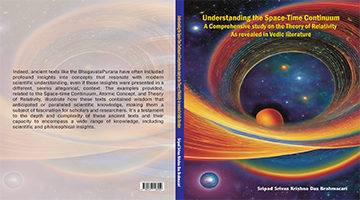
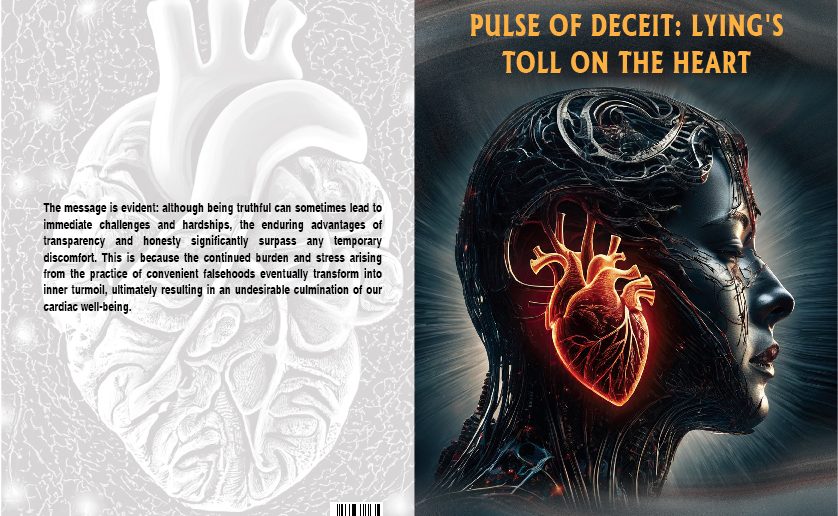

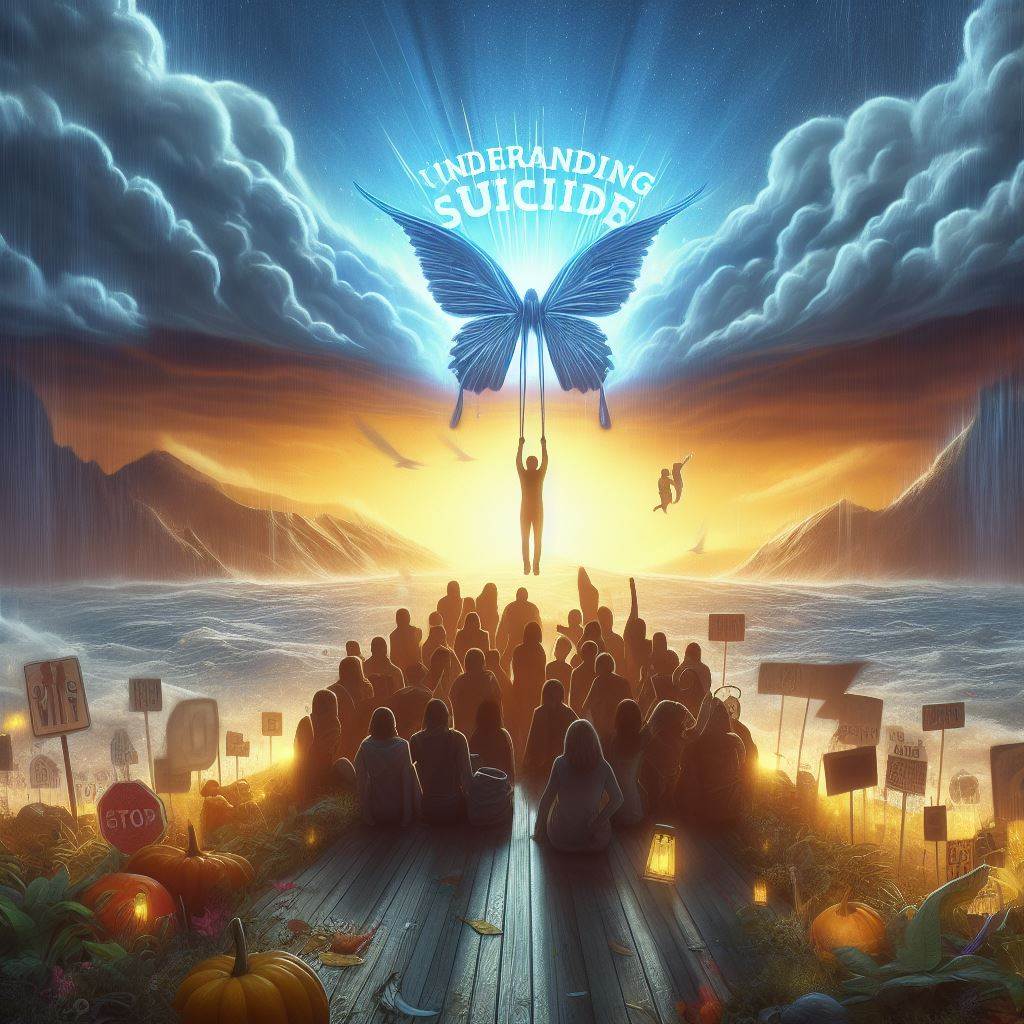









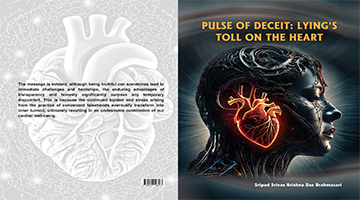
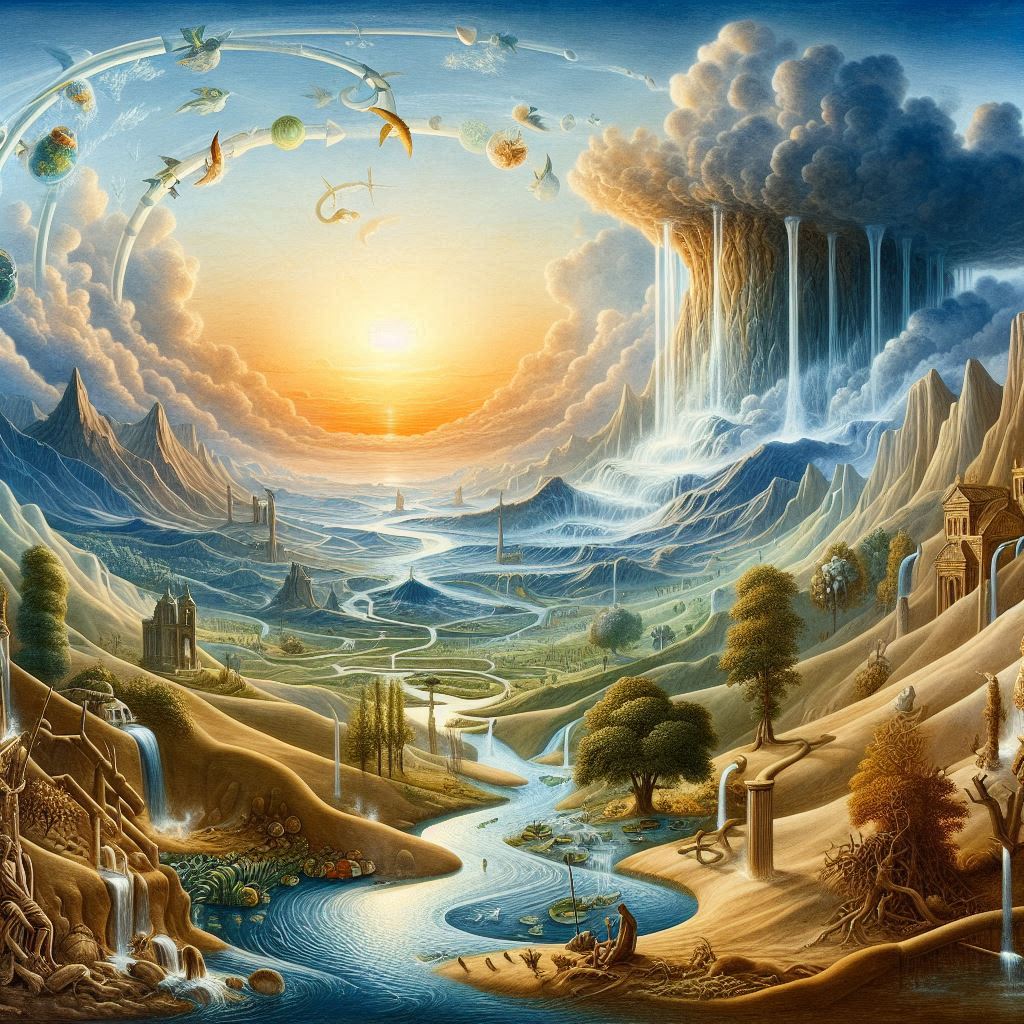
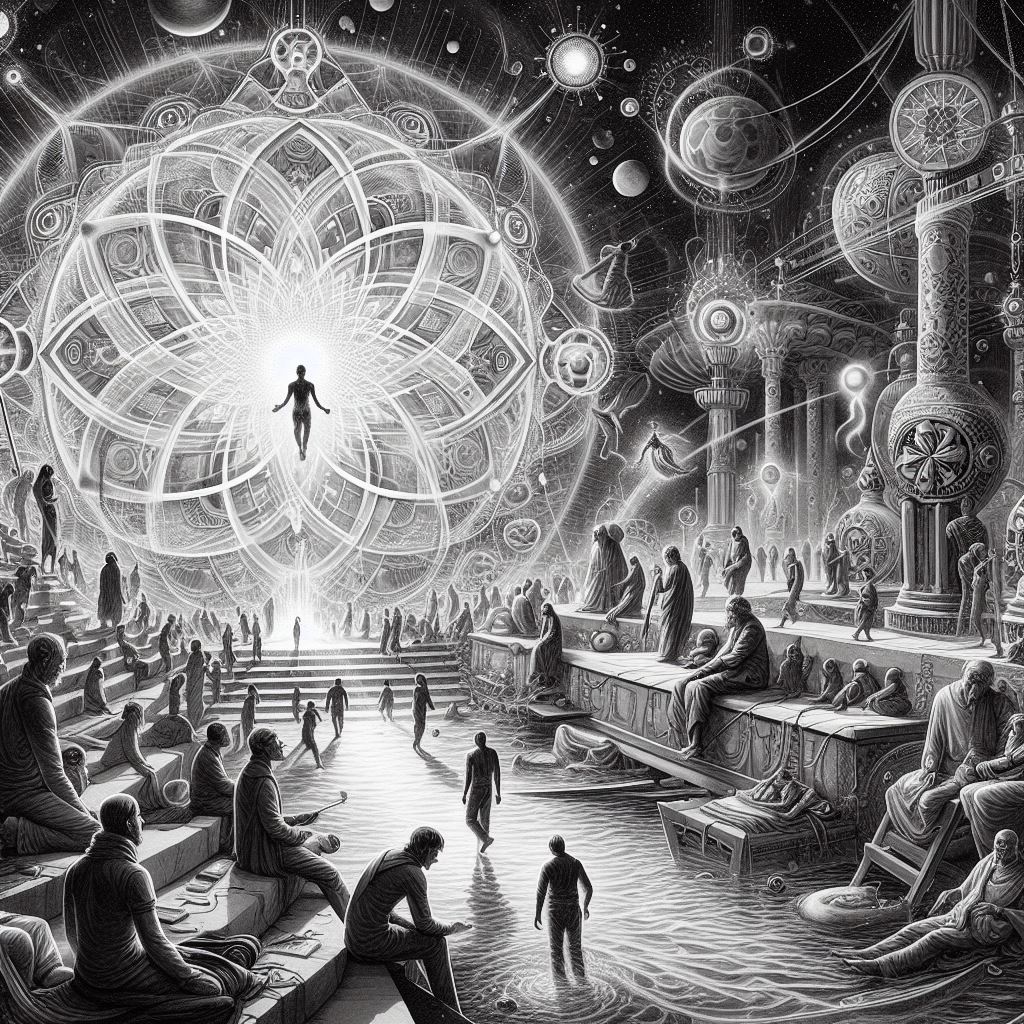
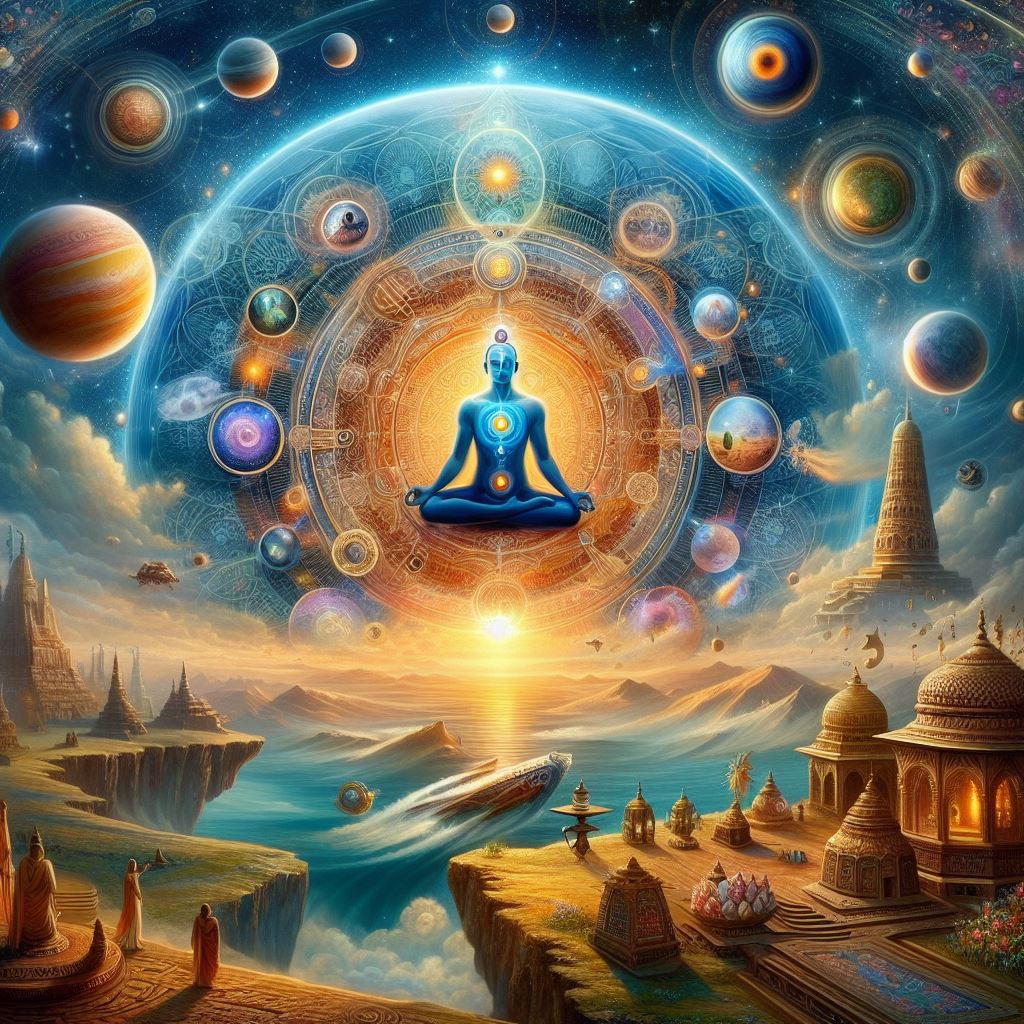




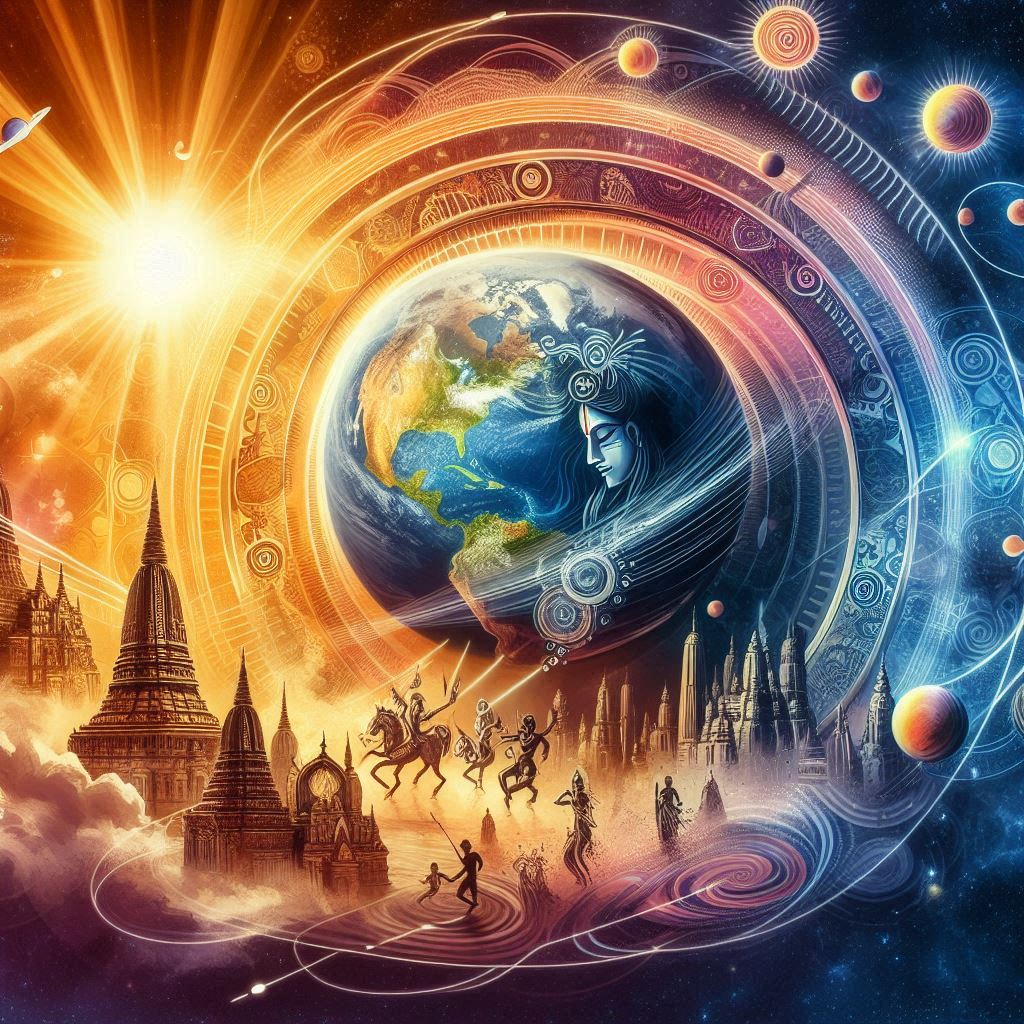
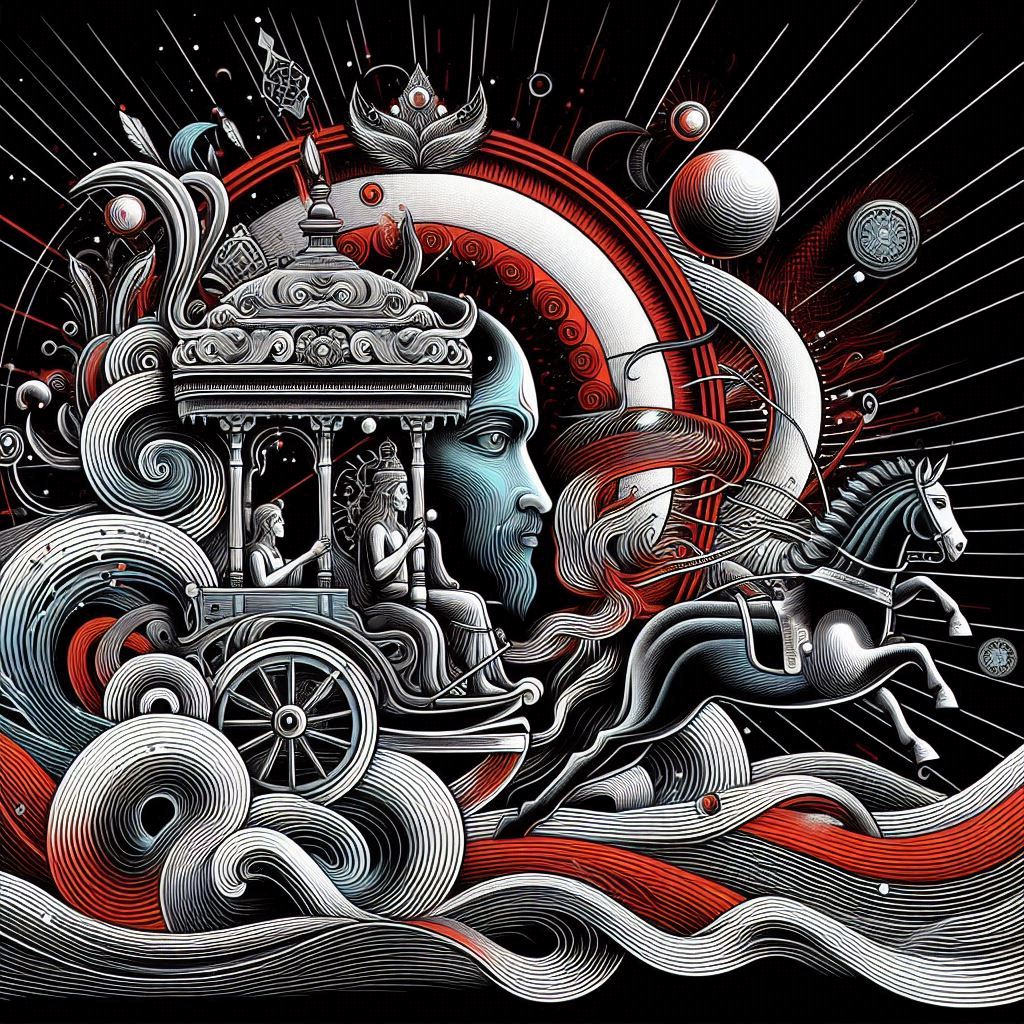
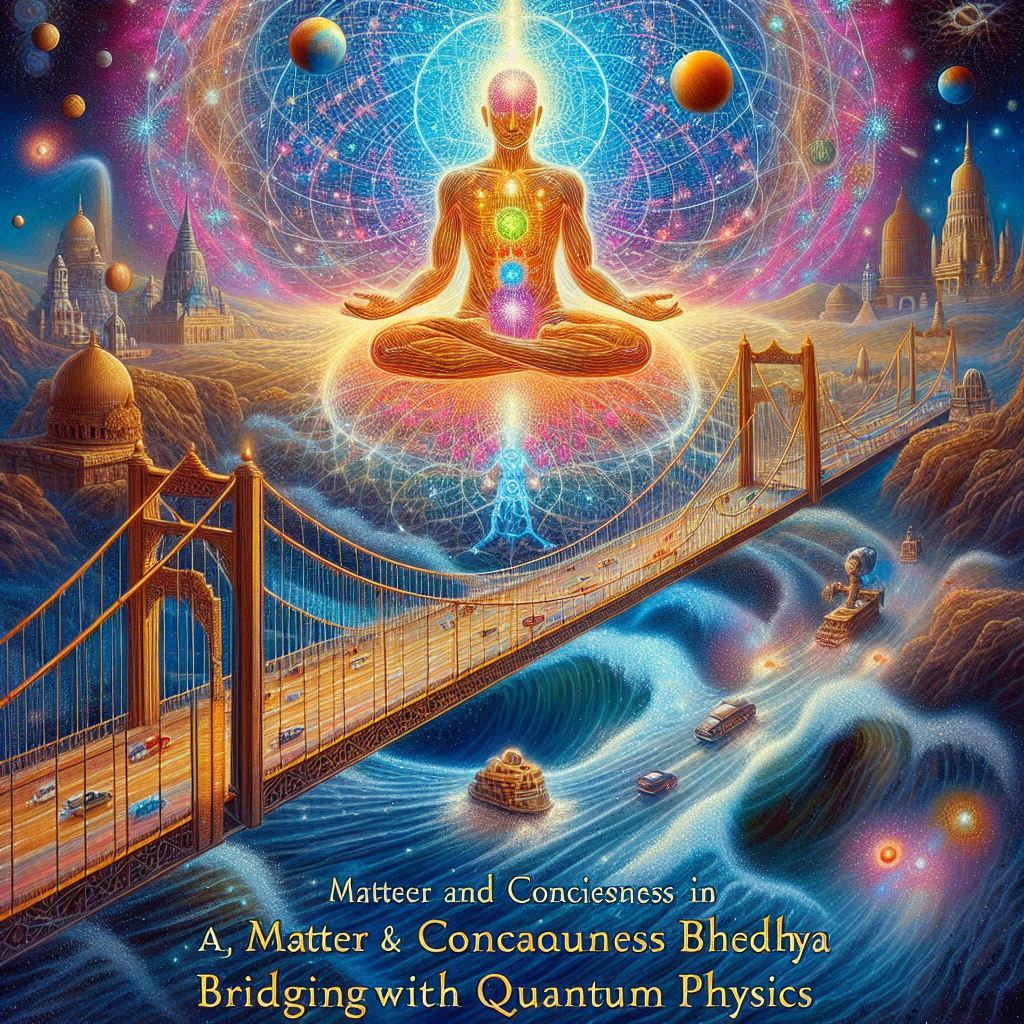
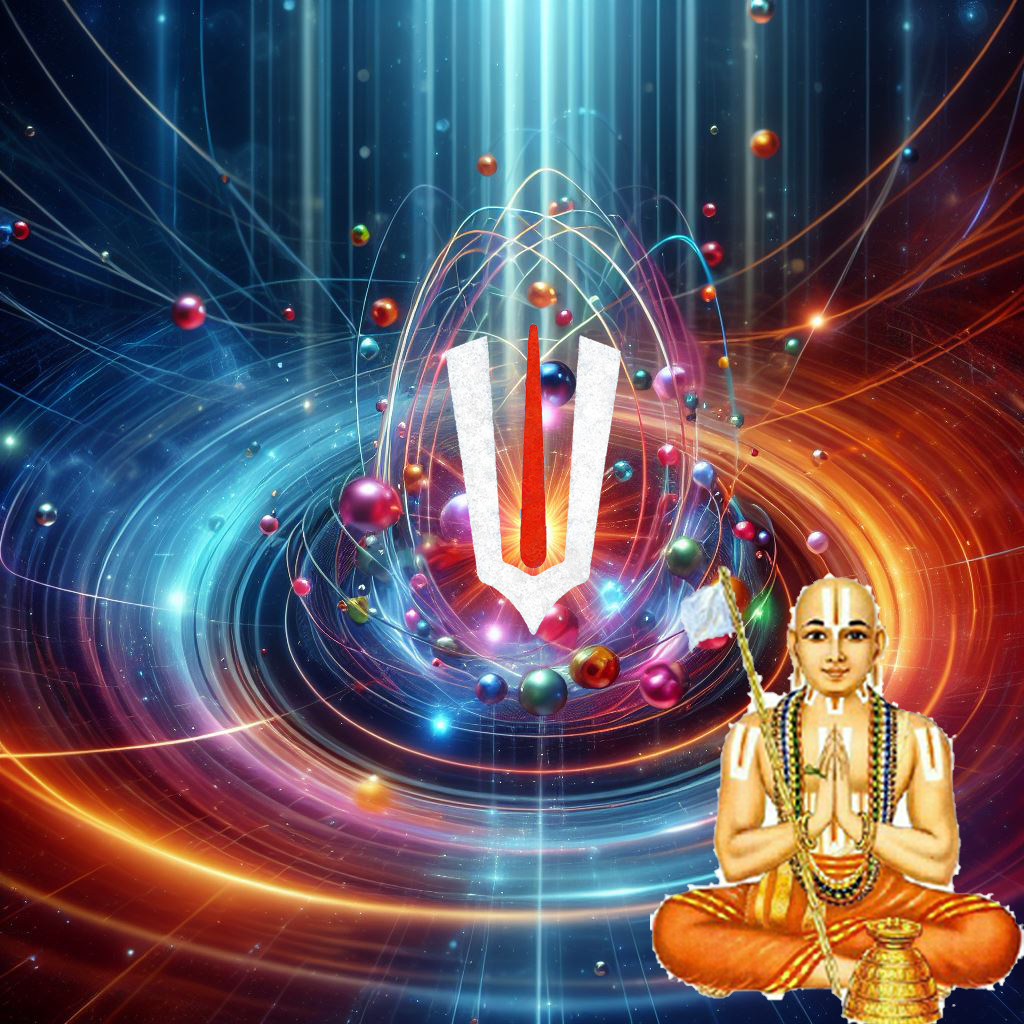
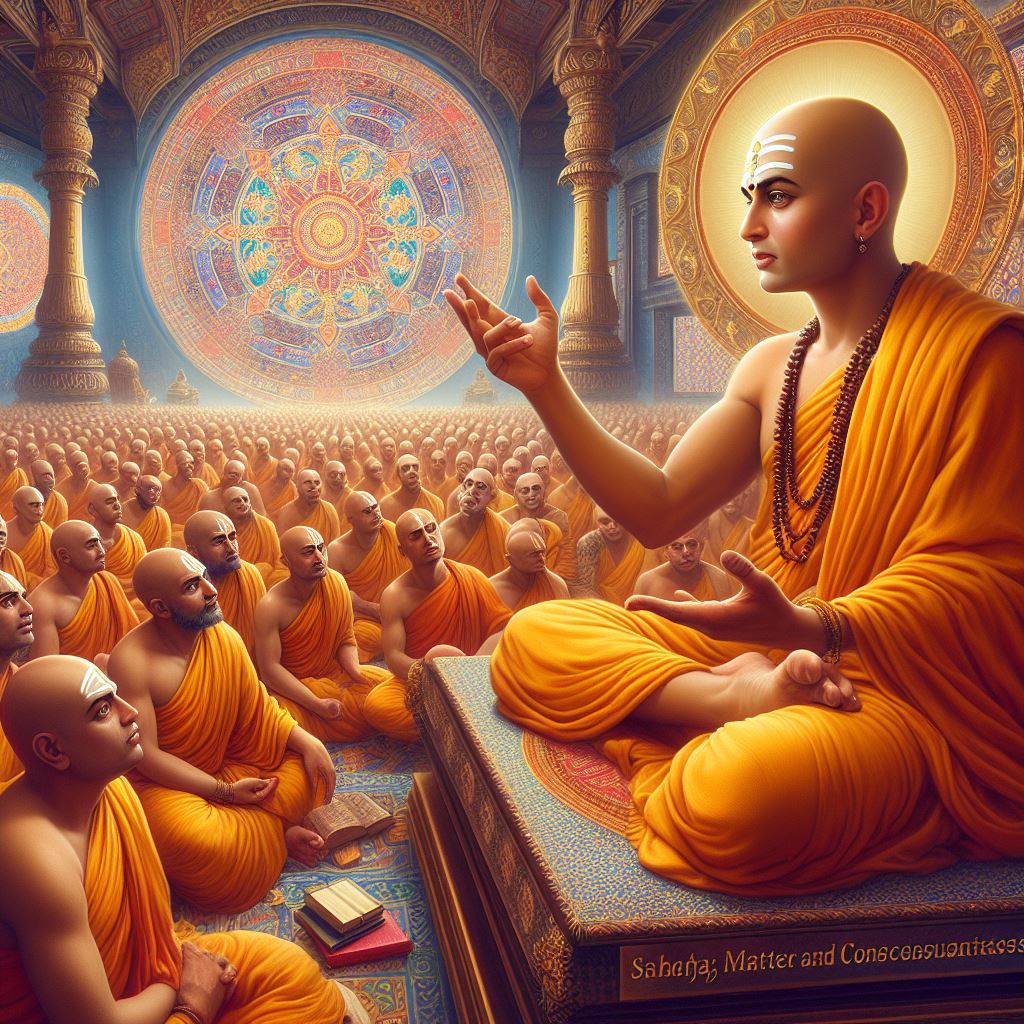
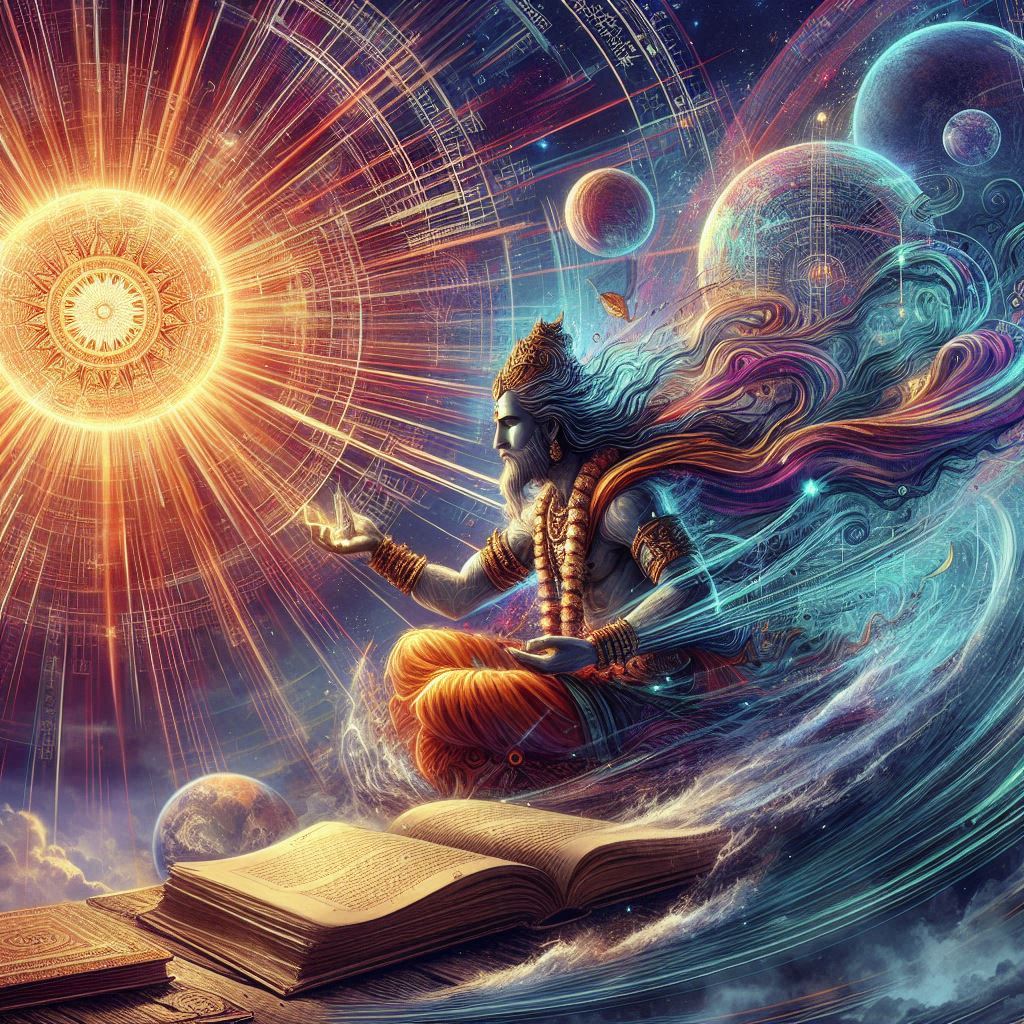
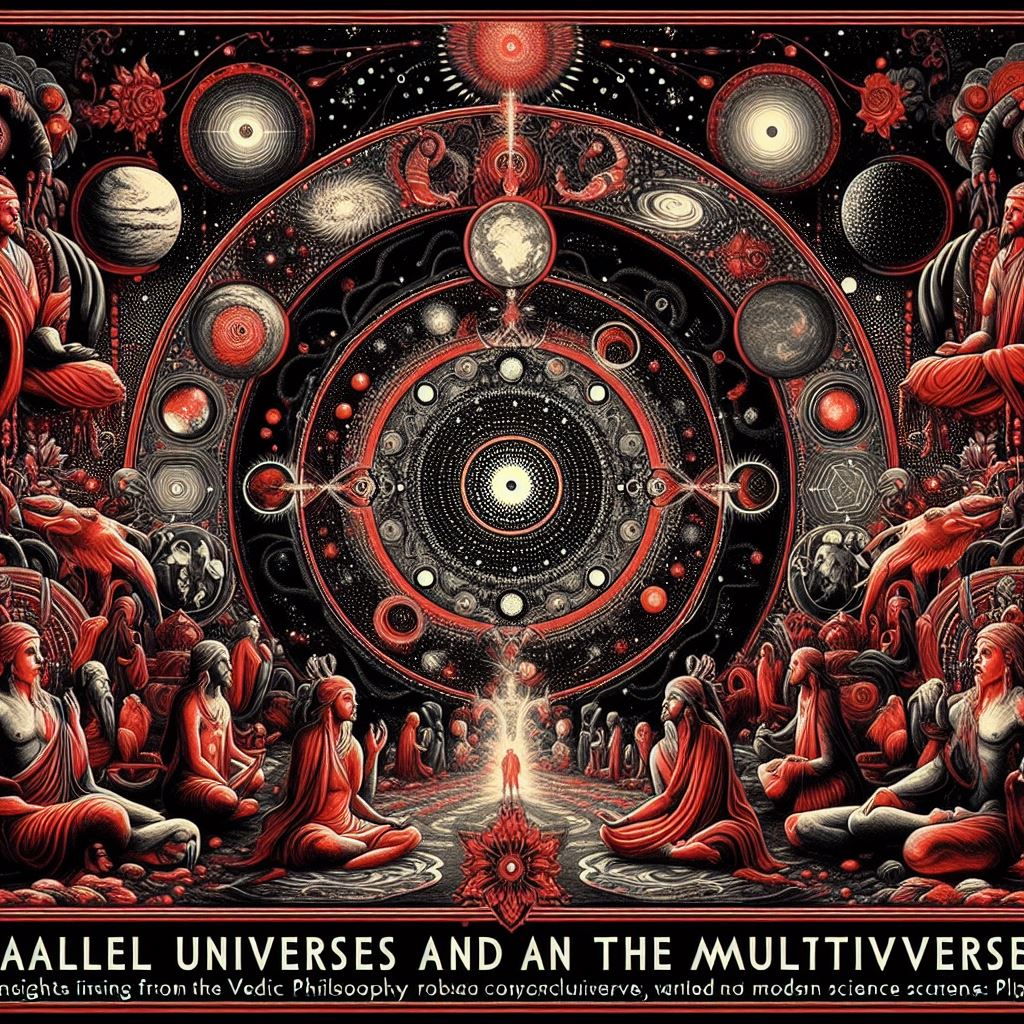
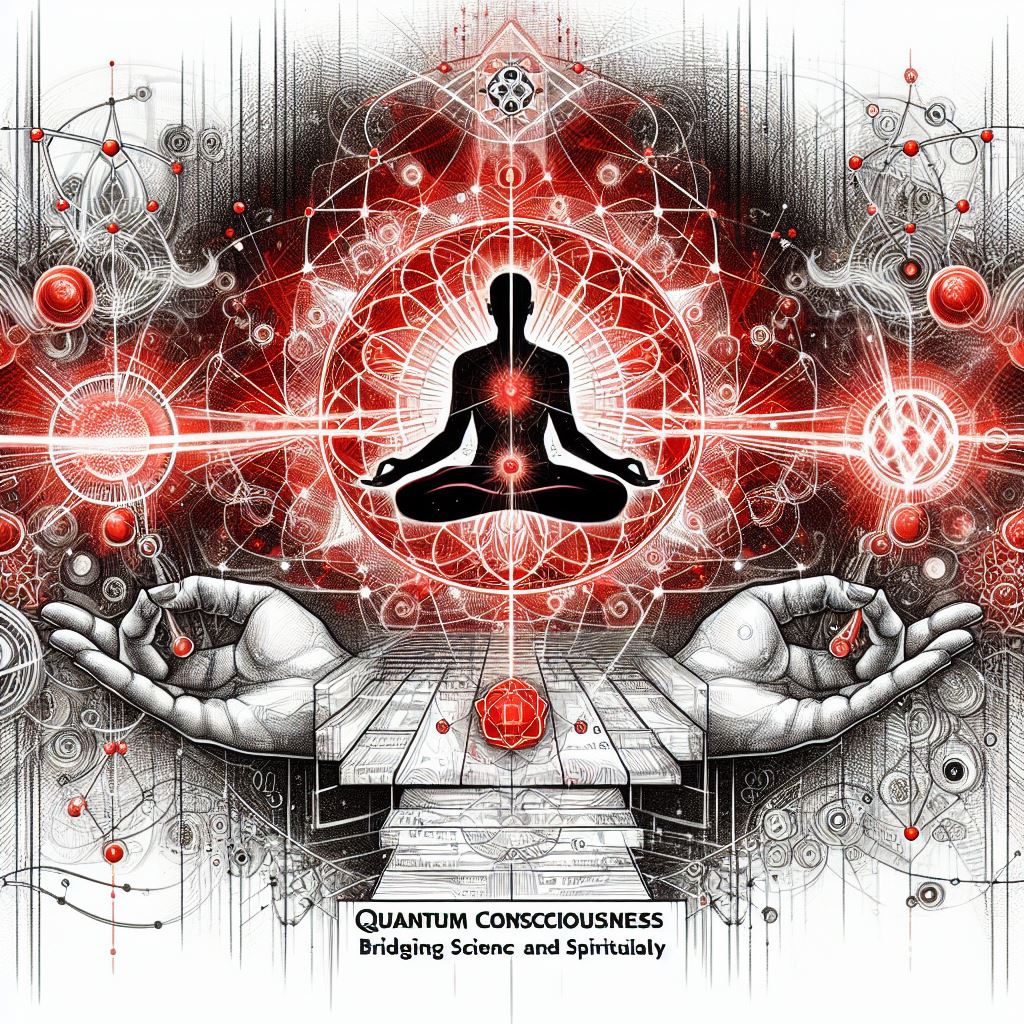


Origin of Science
The Existence of the Soul: Exploring Neuroscience, Quantum Physics and Vedic Philosophy
Temporal Relativity in Vedic Literature: An Interdisciplinary Analysis of Time Dilation Narratives
Acharya Kaṇāda: The Ancient Sage Who Discovered the Atom
Evidence of Vedic Sanātana Hinduism as a Global Dharma
Perception of Quantum Gravity and Field Theory in the Vedas
String Theory as Mentioned in Veda
Sanskrit’s Role in Advancing AI: A Comprehensive Study
The Vedic Model of the Mind: A Contemporary Exploration
Vedic Contributions to Geometry: Unveiling the Origins of Mathematics
Matter and Consciousness in Achintya Bhedābheda: Bridging with Quantum Physics
A Comprehensive Study of Aeroplanes and Aviation in Vedic Literature
Hydrology and the Water Cycle in Vedic Scriptures